Multipliers are typically used to develop higher voltages for relatively low-current applications such as laser systems, X-ray systems, air ionisers, cathode ray tubes etc...
The video above shows such a device capable of generating a high voltage of 100,000 volts and more.
_ _ _ _ _ _ _ _ _ _ _ _ _ _ _ _ _ _ _ _ _ _ _ _ _ _ _ _ _
This project was sponsored by NextPCB
Come to win a $20000 coupon:
https://www.nextpcb.com/Christmas-gift-month?code=Mirko
Register for $10 coupon & Free PCB boards:
https://www.nextpcb.com?code=Mirko
15%OFF - PCB & 10 % SMT Orders:
https://www.nextpcb.com/pcb-assembly-services?code=Mirko
_ _ _ _ _ _ _ _ _ _ _ _ _ _ _ _ _ _ _ _ _ _ _ _ _ _ _ _ _
We can divide the whole device into several parts:
- DC voltage source consisting of mains transformer and rectifier, in this case with output voltage of 15V and current of 5A.
- AC high voltage source, with an output value of 5 to 10 thousand volts. This assembly consists of a driver circuit and a flyback transformer from an old TV. In my case it is a "Plasma Speaker" device I have made before. Here you can create a simpler driver for example with 555 IC, for which is also given the link to the schematic below.
Let me emphasize here that it is necessary to use an output transformer that gives AC voltage, and not a transfocascade whose output we have DC voltage ,that is not suitable for this device.
- Lastly, this is the Cockroft-Walton voltage multiplier which is made up of cascading high voltage diodes and capacitors. They are designed for voltages of 20 thousand volts or more.
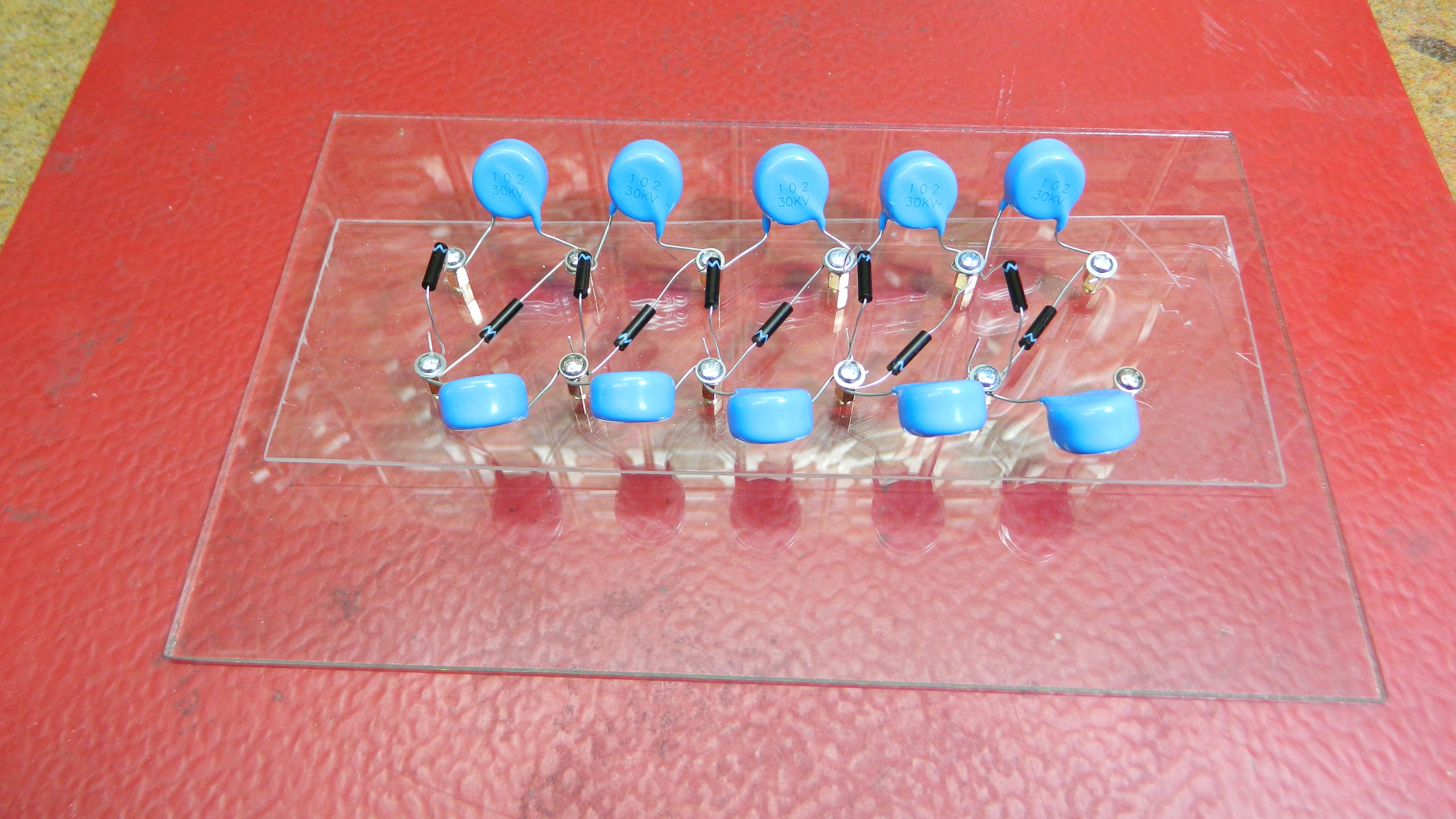
The plate on which they are mounted should be made of highly insulating material to avoid sparking with the substrate. For the same reasons, a piece of glass or pertinax is placed under the plate.
And a very important note:
Never touch the opened device when it is energised. Also wait a while after switching off to allow the capacitors time to discharge. You must adhere to all safety rules.
 mircemk
mircemk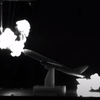
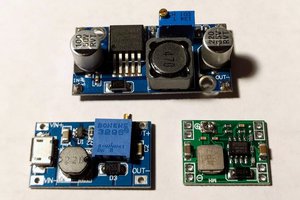
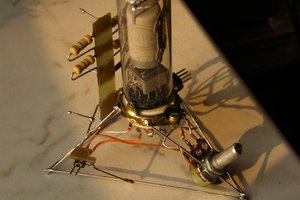
 DeepSOIC
DeepSOIC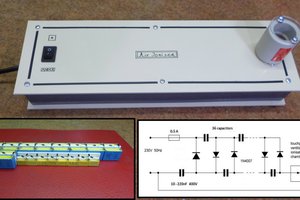

Looks fun. From blowing up a few diodes that look suspiciously similar to yours, I'd advise some resistance in the output. Ideally 10k to 1Meg ohm or so. This can then charge a separate string of caps, which themselves can discharge without high currents getting near the diodes.
If done carefully, the discharge will still empty (or mostly so) the caps in the multiplier, so the charge in them will contribute to the brightness of the arc.
For info, while it might take about 3 kV per mm to break down air, once an arc is going, the voltage along it when in the 10's to 1000's of A range, is more of the order of 3 to 4 V per mm. And for short arcs, the work function of the electrodes has to be considered too. I usually use 3.66 V per mm plus 14 V for the work function. Obviously there are a lot of variables, but it's worked as a rule of thumb for making lightning test machines and melting lots of stuff. While it scaled up to 5m quite well, I believe for very long high current arcs (natural lightning which has a fairly sizable arc channel), it can be lower.
However, if the diodes are not blowing up - Hurrah!